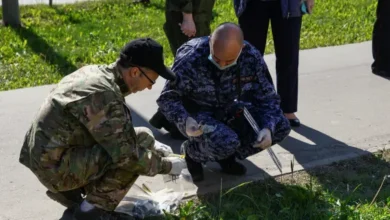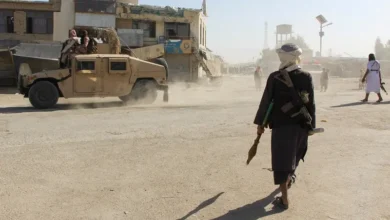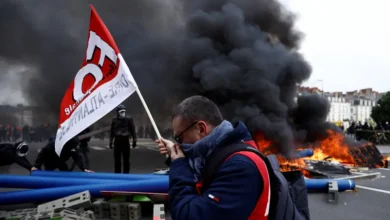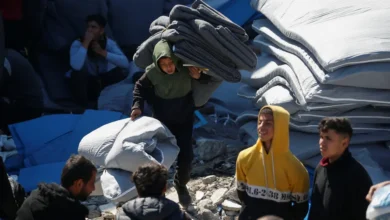First ships dock in Yemen’s Hodeida harbor after Israeli strike
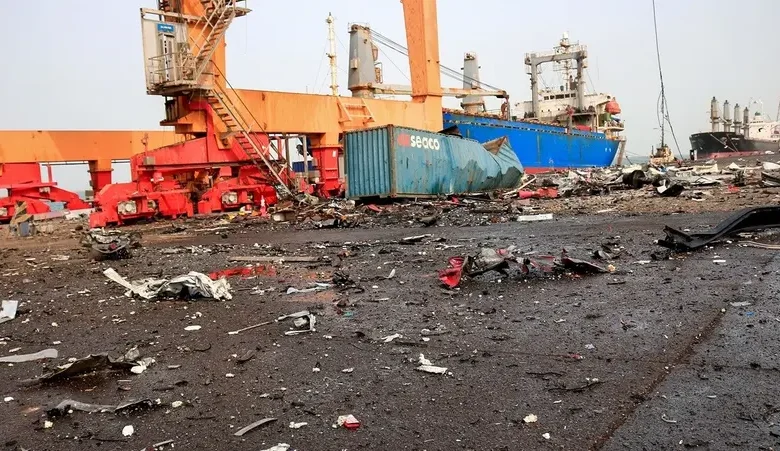
Two container ships have docked in Yemen’s Hodeida harbor, the first since a deadly Israeli strike hit fuel storage tanks at the militia-held port, according to Houthi media and ship trackers.
The strikes on Saturday, the first claimed by Israel on Yemen, triggered a massive blaze that burned for days at the dock amid slow firefighting efforts.
It destroyed some cranes and dozens of oil tanks, according to experts. Another tank exploded overnight between Tuesday and Wednesday, reigniting some flames at the harbour, a critical gateway for fuel imports and humanitarian aid into Houthi-held areas.
Despite the ongoing threat, “the port of Hodeida is working normally around the clock” to receive commercial ships, Ahmed al-Murtada, the deputy director of the container terminal, told the Houthi-run Saba news agency on Tuesday.
The port’s director of maritime operations, Mohamed al-Sais, told Saba that two ships had docked at the harbor on Tuesday.
He identified them as “Marsa Zenith,” a vessel that carried 514 containers of “various goods,” and “Brother 1,” which was loaded with 22,803 tonnes of iron, Saba said.
Ship tracking website marinetraffic.com confirmed the arrival on Tuesday of Marsa Zenith, identifying it as a Panama-flagged vessel that departed from the port of Djibouti.
It additionally reported the arrival of the Tanzania-flagged Brother 1, which also sailed from Djibouti, according to the website.
The quays of Hodeida were spared major damage in the Israeli strike that the Houthis say killed nine people and targeted a fuel storage depot owned by the Yemen Petroleum Company as well as a power plant north of the port.
Maritime security firm Ambrey said there were no reports of major damage to vessels in or near the harbor following the strike.
The port, however, is still at risk of another “catastrophe,” said Mwatana for Human Rights, a Yemeni right group which dispatched an assessment team to the dock.
“Based on [the findings of] our field team, the risk of more fuel tanks exploding still remains,” it told AFP in an emailed statement.
“Whenever the firefighting teams tried to extinguish the fires, the explosions and flames reignited,” Mwatana said.
“There are major concerns that the teams may not be able to… prevent another explosion.”

